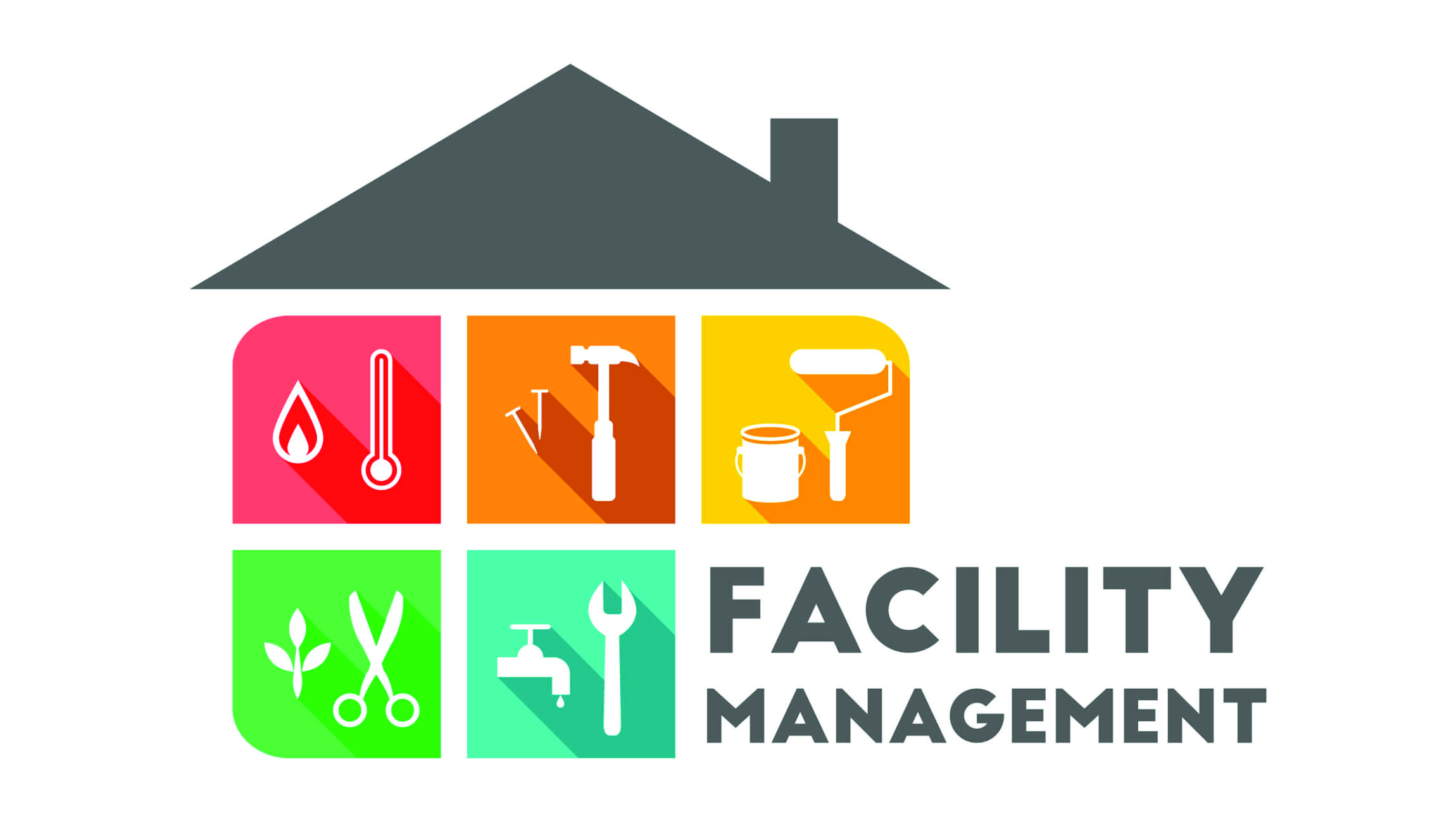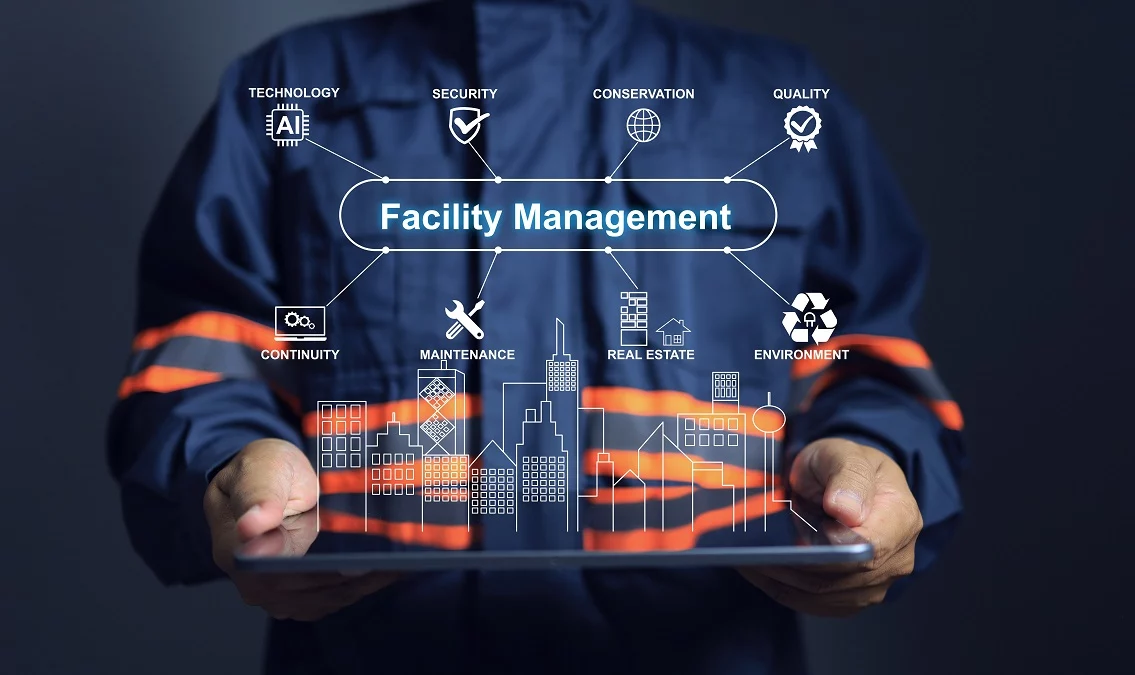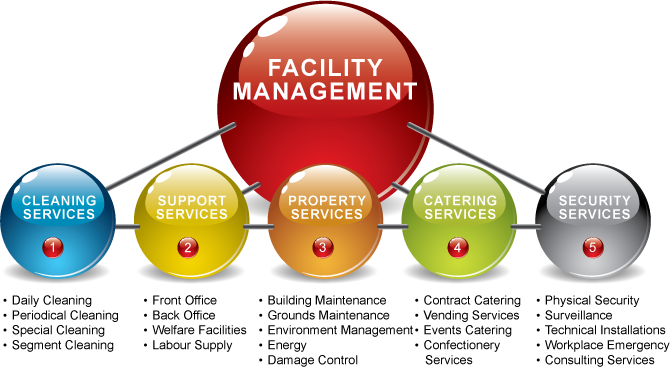The Role of Facility Management in Sustainable Workflow
The Role of Facility Management in Sustainable Workflow
Blog Article
Trick Fads Forming the Future of Facility Administration in 2024
As we expect 2024, the landscape of center management is poised for significant change, driven by a number of crucial trends. The combination of wise building modern technologies and a change in the direction of data-driven decision-making promise to improve operational performance while prioritizing sustainability in practice. Furthermore, the emergence of hybrid work designs is reshaping office settings, requiring innovative layout services that accommodate developing staff member needs. Amidst these adjustments, the concentrate on occupant wellness remains to obtain traction, highlighting the significance of a healthy work environment. How these patterns will materialize in method remains an important concern for sector experts.
Smart Structure Technologies

Smart building technologies include a large range of systems, consisting of smart illumination, heating and cooling controls, and protection systems. By integrating these systems, facility supervisors can monitor and readjust specifications in real-time, causing considerable reductions in energy waste and operational prices. Wise sensors can identify occupancy levels and readjust lights and temperature level accordingly, making certain that energy is only utilized when necessary.
Furthermore, these innovations facilitate enhanced data collection, permitting companies to track usage patterns and identify opportunities for more renovations. The implementation of smart building innovations not just contributes to sustainability goals however additionally develops healthier work settings that can boost worker efficiency and satisfaction.
As we relocate right into 2024, the adoption of smart building innovations will likely accelerate, showing a wider change in the direction of even more intelligent, responsive, and sustainable center administration techniques.
Data-Driven Decision Making
Increasingly, companies are leveraging data-driven choice making to boost center monitoring techniques. By taking advantage of data analytics, center managers can acquire workable insights that dramatically enhance functional effectiveness and resource allotment. The integration of innovative innovations, such as IoT sensing units and real-time surveillance systems, allows the collection of huge amounts of information on structure performance, occupancy rates, and power consumption.
This riches of info permits facility managers to recognize fads, anticipate upkeep requirements, and proactively address problems prior to they rise. For example, anticipating analytics can anticipate devices failings, decreasing downtime and repair costs. Furthermore, information visualization tools help with much better interaction amongst stakeholders, ensuring that informed decisions are made collaboratively.
In addition, data-driven methods improve tactical planning by making it possible for center managers to examine the effectiveness of present practices and make notified choices concerning financial investments in innovation or framework. As companies significantly focus on functional quality, data-driven choice production is positioned to become a keystone of successful facility monitoring methods in 2024 and beyond. Inevitably, the capacity to take advantage of information efficiently will equip companies to produce a lot more efficient, effective, and durable facilities.
Sustainability and Green Practices
The emphasis on data-driven decision making normally lines up with the expanding concentrate on sustainability and green techniques within center monitoring. As organizations significantly focus on ecological duty, center managers are leveraging analytics to optimize source use, reduce waste, and lessen carbon impacts. This critical approach allows the combination of energy-efficient systems, such as LED lights, clever cooling and heating controls, and renewable resource resources right into center operations.
In addition, the application of lasting methods extends beyond power consumption. Facility supervisors are advertising and embracing environment-friendly materials recycling campaigns to produce a circular economic situation within their facilities. This not only boosts the environmental profile of the organization however likewise cultivates a culture of sustainability among employees.
Conformity with ecological guidelines is one more essential facet driving the fostering of eco-friendly methods. By utilizing information analytics, center managers can keep an eye on compliance metrics and identify areas for improvement, making certain adherence to worldwide and regional sustainability criteria.
Crossbreed Work Models
A considerable change towards hybrid work designs is improving the landscape of center management in 2024. This paradigm integrates remote and in-office job, necessitating a reevaluation of room use, source allocation, and worker engagement approaches. Organizations are significantly recognizing the relevance of flexible workspaces that deal with diverse requirements and preferences.
Center supervisors must adapt by implementing functional office styles that support joint efforts while offering areas for concentrated job. This includes the integration of innovation to facilitate seamless interaction and partnership amongst in-office and remote staff members. Smart structure options, geared up with sensors and analytics, enable real-time tracking of space use, making it possible for companies to enhance their settings efficiently.
Moreover, crossbreed work versions stress the demand for effective center administration that focuses on staff member experience. In significance, the crossbreed work model is changing facility administration, urging an aggressive approach to satisfy the advancing demands of the labor force.
Enhanced Passenger Health
As organizations accept hybrid work models, a heightened concentrate on occupant wellness is ending up being important to center monitoring strategies. Facility Management. This shift identifies that a completely satisfied and healthy and balanced workforce directly affects performance and retention prices. Facility site link managers are currently focusing on atmospheres that advertise physical and psychological health, integrating components such as all-natural lighting, biophilic design, and easily accessible wellness resources

Modern technology plays a vital function in this development. Smart building systems can check ecological elements and change setups in real-time, guaranteeing optimal this contact form comfort levels - Facility Management. Furthermore, comments systems, such as occupancy sensing units and employee studies, allow center supervisors to consistently fine-tune wellness campaigns based on passenger needs.

Final Thought
In 2024, the future of center management will certainly be considerably affected by the assimilation of smart building technologies and data-driven decision-making, promoting boosted operational effectiveness. Sustainability efforts will prioritize eco-friendly methods, while the emergence of crossbreed job versions will demand adaptable workplace styles. Furthermore, an enhanced emphasis on passenger health through sophisticated cooling and heating systems and biophilic design will add to healthier workplace. These patterns collectively highlight the evolving landscape of center monitoring in action to modern challenges and possibilities.
Center managers are adopting green products and advertising reusing efforts to create a circular economy within their facilities.A special info significant change towards hybrid work models is reshaping the landscape of center management in 2024.Additionally, hybrid job versions emphasize the demand for reliable center monitoring that focuses on worker experience.As companies welcome hybrid job designs, an enhanced emphasis on occupant wellness is coming to be essential to center management approaches.In 2024, the future of facility management will certainly be substantially affected by the assimilation of clever building innovations and data-driven decision-making, cultivating improved functional effectiveness.
Report this page